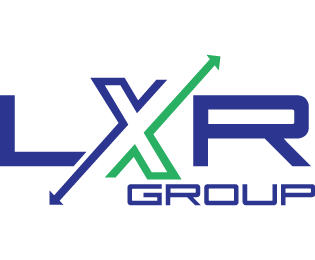As LXR Group detailed in its most recent Bulletin on Capital Markets and Financial Services Policy, on June 15, HFSC Chair Patrick McHenry took the remarkable step of abruptly announcing two HFSC back-to-back oversight hearings focused on the SEC for the following week.
The oversight hearings, both conducted on June 22, marked an obvious escalation of the increasingly acrimonious and personal dispute between McHenry and other top HFSC Republicans on the one hand, and the SEC Chair on the other. The hearing also marked, in LXR’s opinion, the nadir of Congress’s relationship with the Commission in the modern era and, likely, an inflection point in the new House GOP majority’s treatment of capital markets policy; whereas the first half of 2023 was focused on “capital formation” legislation, we expect the second half will be dominated by oversight.
The first hearing was held by the Subcommittee on Oversight and Investigations (O&I) and the witness was SEC General Counsel Megan Barbero.
The second hearing was held by the Subcommittee on Capital Markets and the witnesses were Haoxiang Zhu, Director of the SEC Division of Trading and Markets, and Dr. Jessica Wachter, Director of the SEC Division of Economic and Risk (DERA).
Here are the main takeaways.
- HFSC Republicans View the SEC an “Outlier” Among the Independent Agencies.
HFSC O&I Subcommittee Chair Bill Huizenga (R-Mich) kicked off the first of the day’s two hearings by reminding “everyone paying attention” of Congress’s broad authority to conduct oversight, pledging that his subcommittee “will continue to conduct oversight where needed.” After pointedly reminding Barbero that, “with all due respect, it’s not up to the [SEC] General Counsel’s office or Chair Gensler to decide what those investigations are,” he addressed the extent of his frustration with the SEC’s “unresponsiveness to the Committees requests,” which he characterized as “extremely slow and limited…[and] let’s not for a second pretend that this unresponsiveness has always been the case for the SEC.”
Huizenga drew a series of comparisons that placed the SEC under Chair Gensler in an unfavorable light, observing that “past chairs have been quick to respond to Congress, in contrast, Chair Gensler and, by extension, you have continued to miss deadlines, offer no accommodations, blame staff shortages, budget deficiencies and bureaucratic obstacles.” Huizenga also noted in contrast that “the Federal Reserve, the FDIC and other regulators have been perfectly capable of providing important documents, testimony and access to documents. The SEC is an outlier.”
Huizenga placed the blame for the increasingly confrontational and contentious relationship between the HFSC and the Commission squarely at the feet of Chair Gensler: “This hearing could have and should have been avoided, but what other choice do we have when the SEC, your boss and you by extension, continue to be uncooperative and unresponsive.”
Huizenga wrapped up with a promise that “at today’s hearing you’ll hear countless instances where the chair and his staff have failed to respond to member inquiries often with complete disregard to the questions being asked,” and over the course of the ensuing 80 minutes, in our view, he and his colleagues on the subcommittee largely delivered on that pledge.
- The Commission has Recently Implemented Changes to its Internal Procedures that Slow its Ability to Respond to Congressional inquiries.
A question from Rep. John Rose (R-TN), about whether “the Commission’s rules allow the chair to authorize the Office of General Counsel (OGC) or the Office of Legislative Affairs (OLIA) to send an action memo asking the commission to approve the release of responsive nonpublic information to the committee on a rolling basis,” led to a very interesting exchange in which Barbero appeared to acknowledge that the SEC’s OLIA had opted not to request permission from the Commission to provide Congress with nonpublic information on a “rolling basis,” despite its having the authority and despite this being a fairly standard practice at the SEC. (Later in the hearing Huizenga submitted for the record an action memo “from the Enron era where it shows that there was this blanket authority given to release information to a congressional inquiry.”)
The hearing also shed light on organizational changes that have afforded the SEC’s OGC a more formal and more influential role in managing and responding to Congressional inquiries. Specifically, Barbero discussed the agency’s recent move to establish an “Oversight and Adjudication Group” within the OGC tasked with, among other things, working alongside the OLIA to manage the SEC’s interactions with the Hill. As Barbero explained: “That is a new function. I’m very proud that we stood up that group and that we have very talented staff in the group to be able to respond quickly and efficiently to oversight requests.
This is, frankly, revealing. Ordinarily, legislative affairs offices interface with Congress directly, and general counsels’ oversight groups tend to be limited to reviewing documents for privileged information. The SEC’s move to integrate OGC and OLIA suggests it recognizes that the coming months will not be “business as usual,” and is preparing to use all legal tools at its disposal to manage and where necessary counter congressional inquiries. As discussed below, these legal tools are being put to use.
- The SEC’s Strategy for Managing Republican Oversight Has So Far Proven Successful, “Blocking” GOP Inquiries “At Every Turn.”
During the Q&A portion of the O&I hearing, Committee Chair Huizenga all but acknowledged that the SEC’s legislative team has routinely outmaneuvered the HFSC majority.
“It’s safe to say the SEC has hired some good staff who know the ins-and-outs of congressional oversight. Certainly, you have been a long-time hand at this. Frankly, we have not received substantive responses in most of our requests. And it seems like you and the rest of the SEC staff who are well-versed in congressional oversight and our responsibilities are very well equipped. We know you have a great stellar reputation for being a very, very good lawyer. A tough lawyer. And you know how to respond to Congressional requests because you certainly have put those out in your previous capacities. Some might suspect that the SEC is using your congressional oversight experience as a weapon to block us at every turn, frankly. I sincerely hope that that is not true.”
The public knows very little about these interactions. Although the HFSC Republicans claim to have thus far received very little of what they’ve requested, this to some degree attributable to the fact that the GOP is barely six months into its majority, and the scope of it requests have been sweeping. Eventually, committee chairs, who can issue enforceable subpoenas, largely get the documents that they request.
- Securities Legislation Will Take a Back Seat to SEC Oversight for the Duration of 2023.
The second of Thursday’s hearings on “Oversight of the SEC” was held by the Subcommittee on Capital Markets (“CM”), Chaired by Rep. Ann Wagner (R-MO).
As readers of LXR’s blog are already aware, the CM Subcommittee has been extremely productive on policy issues since Wagner ascended to the top position in January, introducing roughly 30 securities bills that have already been advanced by the HFSC, including roughly a dozen that have already been approved by the full House. With her legislative priorities now on their way to the Senate, Wagner used Thursday’s CM hearing to publicly announce that her subcommittee would be turning its attention to oversight of the SEC’s divisions.
“Today’s meeting represents the first in a long overdue series of hearings where we will hear directly from division directors at the Securities and Exchange Commission. Given the historic and unprecedented volume of proposed rulemakings being advanced at the SEC under Chair Gensler, it is imperative that this Committee hold public hearings featuring the SEC staff responsible for overseeing these rulemakings.”
- Major Rules the SEC is Attempting to Finalize Will be Subject to Legal Challenges over Cost-Benefit Analysis – HFSC Republicans Seek to Help These Challenges Succeed.
For anyone who missed the memo, the name of the game for opponents of the Gensler’s rulemaking agenda now and for the foreseeable future is regulatory impact analysis.
Under current law, the SEC is required to perform certain cost-benefit analysis (CBA)—a systematic and sometimes quantified examination of potential economic costs and benefits resulting from the implementation of a proposed rule—as part of the rulemaking process. Specifically, pursuant to a 1995 law, the SEC, when engaged in rulemaking, is required to “consider or determine whether an action is necessary or appropriate in the public interest … [and] whether the action will promote efficiency, competition, and capital formation,” in addition to an analysis of “the impact any such rule or regulation will have on competition” that includes the reasons that “any burden on competition imposed” is necessary and appropriate. The Regulatory Flexibility Act (5 U.S.C. §§603-604) and the Paperwork Reduction Act (44 U.S.C. §§3506) also impose analytical requirements that are generally applicable to all regulatory agencies, including the SEC.
One of the two legislative measures posted in connection with last week’s oversight hearings, SEC Regulatory Accountability Act, seeks to impose additional cost-benefit requirements for the SEC; specify parameters and considerations that must be part of the analysis; and require the SEC to retrospectively assess the impact of adopted regulation. This legislation passed the House in 2017 and it is likely to again – although its prospects in the Senate are dim. However, even without the additional burdens contemplated by the legislation, SEC rules must clear a higher bar than most other agencies in order to withstand judicial scrutiny and avoid being tossed out by a court.
Last week’s oversight hearings marked the beginning of a push that will see congressional Republicans use their oversight tools to do everything they can to strengthen future legal arguments that many of the major SEC rulemakings now underway fall short of that bar and pave the path to successful judicial challenges upon adoption.
- The SEC’s Decision to Pursue Multiple and Interrelated Rulemakings, Simultaneously, Complicate Its Ability to Conduct Credible Cost-Benefit Analysis.
From the very outset of the SEC’s rulemaking under Chair Gensler, the SEC and stakeholders on all sides of its proposals have understood the crucial and potentially decisive importance of cost-benefit and other regulatory analysis in determining the rules success or failure. However, the June 22 hearings served to spotlight a specific angle of attack that will likely feature prominently in Congressional oversight and eventual litigation. The general idea is that it is all but impossible to conduct a credible CBA of a pending major rule proposal if the proposal is closely interrelated to another pending rule proposal because no accurate “baseline” is available for comparison.
Addressing the elements of a “good regulatory analysis” in testimony to Congress in 2012, then SEC Chair Mary Shapiro explained the importance of an accurate “baseline” in CBA.
“One important component of a good regulatory economic analysis is to define a baseline against which to measure the likely economic consequences of the proposed regulation. The baseline is the best assessment of how the world would look in the absence of the proposed action and serves as a primary point of comparison for an analysis of the proposed regulation. In its economic analyses, the Commission’s general practice has been to follow this approach and to consider fully the effects of its proposed rules against a baseline of the regulatory status quo, taking into account all the costs and benefits of the proposed rule.”
The criticism – the idea that having multiple interrelated rule proposals pending simultaneously prevents an agency from establishing a credible “baseline” and thus a credible CBA – was the basis for many of the questions and criticisms leveled at DERA Director Jessica Wacher throughout the hearing.
For example, noting that “the SEC repeatedly admits that it is, and I quote, unable to quantify, estimate, or know the economic effects, and it states nearly 100 times that it is, again, uncertain of the impacts its proposals will have,” Rep. Wagner pressed Watcher on the SEC’s market structure rule proposals: “Each of these four rules are significant and will have a material impact on trading outcomes for millions of investors. With the rules scheduled to go into effect simultaneously, how can you, as the director of DERA, with a straight face, claim to measure to what degree each of the four rules contributed to a better or worse outcome for investors? Wouldn’t it make more sense to issue them incrementally so each rule’s efficacy could be measured distinctly?”
Similar concerns were voiced to varying degrees at the hearing by Reps. Frank Lucas (R-OK), with respect to the SEC’s proposed rule 10b-1; by Rep. Greg Meeks (D-NY), with respect to the SEC’s private funder adviser proposal; by Rep. David Scott (D-GA), with respect to the equity market structure proposals; and by Rep. Bryan Steil (R-WI), with respect to the relationship between the SEC’s order competition rule proposal and best execution requirements.
The emphasis on the “interrelated” nature of SEC rulemakings was recently echoed by at least one other major trade association. On June 17, the Investment Advisor Association (IAA) sent letter to the SEC Chair addressing “more than a dozen consequential new rules and proposals – some that are highly interrelated” Like Wagner, the IAA’s letter emphasized that “the proposals are especially interconnected, include duplicative and potentially inconsistent requirements, and address overlapping concerns,” and expressed concern that the SEC has not “addressed how these proposals may overlap or interact with [other proposals], which are also closely related.”
- The GOP’s Pivot to Oversight Flips the Political Script in Unpredictable Ways.
One of the most well-worn subplots of capital markets policy over the past several years involves Chair Gensler’s appearances before Congress. Throughout 2022 and the first half of 2023, Republicans atop the HFSC and the Senate Banking Committee repeatedly and urgently demanded that Chair Gensler be called to testify about the SEC’s regulatory agenda, only to see their requests reliably dismissed, ignored, or explained away by their Democratic counterparts.
Rinse. Wash. Repeat.
That dynamic appeared to abruptly reverse itself yesterday, as Committee Democrats spoke in favor of calling Gensler to testify more frequently before the Committee and even accused Committee – only to find their pleas largely dismissed, ignored, and explained away.
Speaking at the O&I hearing, Ranking Member Green (D-TX) expressed the view that if Republicans “had a sincere desire to properly manage [the SEC], we would have invited the head of the SEC here today. He’s the person who is best able to address the many concerns that may be raised.” At the CM hearing, Full Committee Ranking Member Maxine Waters (D-CA) used her opening statement to note that “Last Congress, Republicans threatened that SEC Chair Gensler would testify quite frequently, but they’re reluctant if not afraid to hear what he thinks…and I can understand why.”
Stakeholders should be on the lookout for a further reshuffling of political positions and messaging from both parties as the oversight contest heats up.
- HFSC Democrats have the SEC’s – and Gary Gensler’s – Back.
During the morning’s O&I hearing, the Committee’s top Democrat, Rep. Maxine Waters (D-CA), appeared to acknowledge some degree of validity to some of the GOP’s frustration. At one point, for example, she asked General Counsel Barbero “how the SEC is balancing the legitimate enforcement concerns with his obligation to provide Congress with information,” and urged “a resolution that accommodates both the concerns of the executive branch and the information needed by Congress.”
Ultimately, however, speaking at day’s second hearing, Waters left no doubt but that she and the Democrats stand shoulder-to-should with the SEC and with Chairman Gensler.
“Let me just say that I appreciate your appearance here today. I appreciate the appearance of your colleagues [this morning] in the investigation and oversight committee. You guys have been taking a beating from my colleagues on the opposite side of the aisle. You are our cops on the block and Gensler is highly qualified and is doing an excellent job. So, I want you to continue to do the work that you are doing, the work that you are mandated to do. And I do not wish you to be intimidated at all by unreasonable requests or questions.
I’ve heard today about the kinds of documents and information that’s being required. Reams, millions of documents, etc., etc. And if you’re expected to turn them around in a short period of time or to disregard your mandate and your responsibility, you have to resist that. And so, on behalf of those on this side of the aisle, who appreciate the enormity and the complications that you’re dealing with, continue to do what you’re doing. You’re on the right track. Again, I can’t say it enough. You’re our cop on the block.
Members on the opposite side of the aisle have insisted on starving you to death and not giving you the resources that you’re needed.
You need more resources. You need more personnel. But you keep doing what you’re doing. There are some of us who are very appreciative for your work, and we’re going to always support you in every way that we can. And I yield back the balance of my time.”
###


